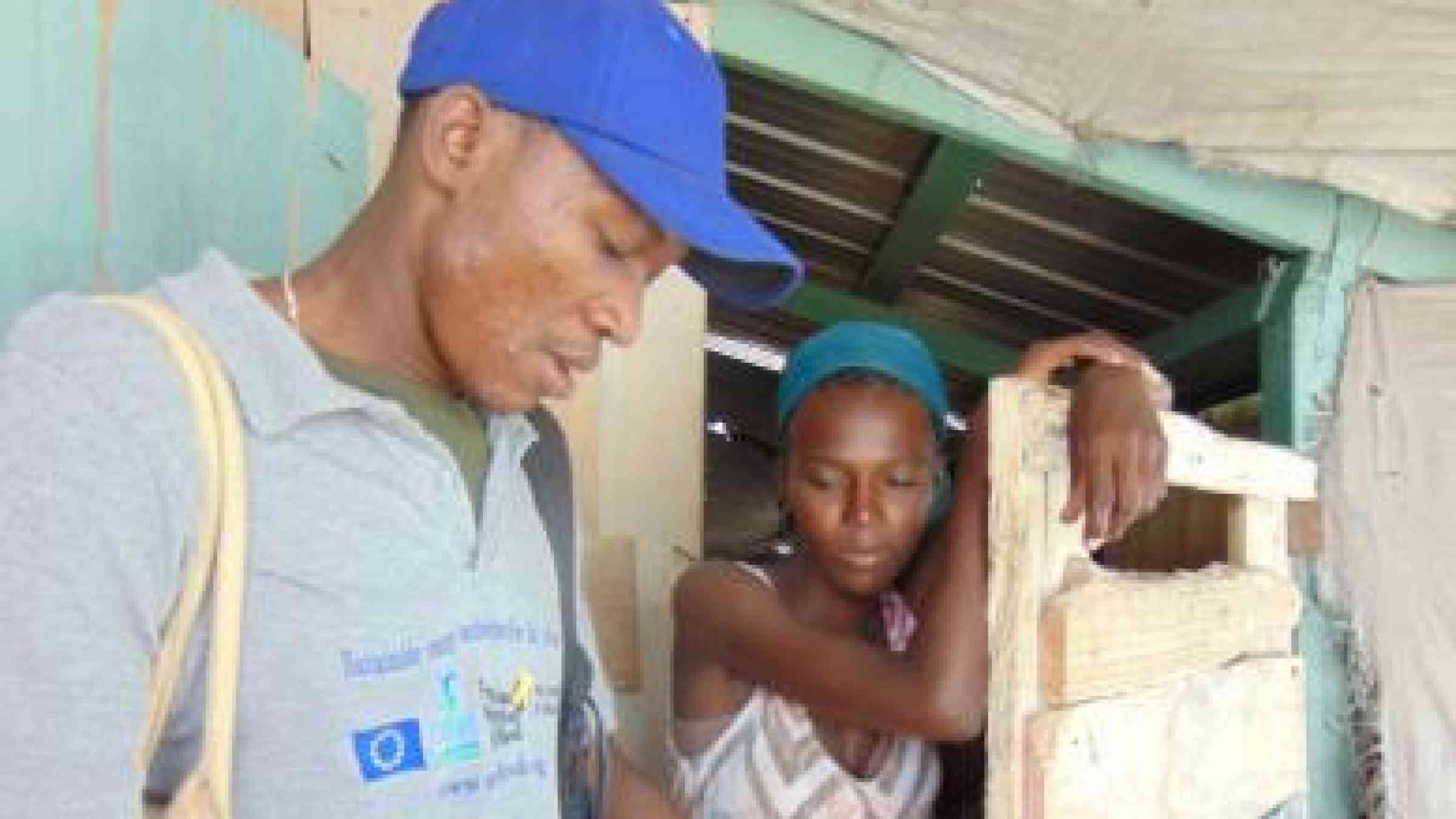
By Lara Palmisano
This week, the International Day for Disaster Reduction celebrates how traditional, indigenous and local knowledge can reduce risks. COOPI in Haiti works closely with local communities and institutions, as well as with civil society and the private sector.
Flooding, drought, landslides, heavy storms, hurricanes, earthquakes and tsunami: these are just some of the events that threaten Haiti, many of which are exacerbated by climate change effects and a fragile resilience.
According to the United Nations Office for Disaster Risk Reduction (UNISDR) in 2014, 19.3 million people were newly displaced by disasters. For example, Haiti is considered by the Office for the Coordination of Humanitarian Affairs (OCHA) the fifth most disaster prone country in the world. More than 96% of the population is exposed to two or more natural hazards, and there is the presence of 64.500 people who are still living in IDP (internally displaced persons) camps since the 2010 earthquake, yet. With more than a quarter of the total population of Haiti living in extreme poverty, capacities to resist and recover from crises remain very low. Even small shocks can generate substantial impacts on the socio-economic recovery of the Country and the consolidation of sustainable development.
“It is mostly at the local level that capacities need to be strengthened urgently,” explains Morenza Zucchelli, the representative of the Italian NGO COOPI – Cooperazione Internazionale in Haiti. Consistent with the Sendai Framework for Disaster Risk Reduction 2015-2030, “COOPI’s approach is people-focused and is strictly connected with to concrete action in order to mitigate the disaster risks. It applies to the risk of small-scale and large-scale disasters caused by man-made or natural hazards. Our particular focus is on the information management in order to strengthen the resilience in rural and urban areas.”
Strengthening the information management in countries with a high level of disaster risks is crucial to ensure a deep understanding of the resource vulnerability and needs, which are essential for the effective development of a country.
COOPI in Haiti is working to ensure that its beneficiary population has the suitable knowledge on the management of disaster risks. “Studying a land and its history, one can understand the environmental context, threats, vulnerability and resources. From there, one can define appropriate activities to mitigate risks.
In Haiti, COOPI keeps an attentive eye on risk reduction capacity building for vulnerable communities. It also realizes small scale mitigation works in strict collaboration with local institutions, private sector and civil societies. When one knows our vulnerability, it is possible to be prepared to ensure response capacities, decrease our exposure to disasters, loss of lives, and the development logic subversion, ” concludes Ms. Zucchelli.
Actions to reduce the vulnerability should include: constructions’ stricter rules, sustainable land planning, better alert systems, cautious environmental managements, evacuation and emergency plans and, mostly, appropriate information to the population. Communities and individuals must acquire a strong understanding of disaster risks and be active actors of the resiliency’ strengthening process.
Compelling plans to limit the risk of disasters are needed if we want to achieve the new Global Goals. From the eleventh to the fifteenth, the Global Goals aim to: “make cities and human settlements inclusive, safe, resilient and sustainable”; “ensure sustainable consumption and production patterns”; “take urgent action to combat climate change and its impacts”; “conserve and sustainability use the oceans, seas and marine resources for sustainable development”; “protect, restore and promote sustainable use of terrestrial ecosystems, sustainability manage forests, combat desertification, and halt and reverse land degradation and halt biodiversity loss.”
In Haiti, COOPI is working with the European Community Humanitarian aid Office (ECHO) and the US Agency for International Development (OFDA/USAID) on Food Security and Disaster Risk Reduction projects.
From November 30 to December 11, the world is on track to have a 2015 agreement at the 21st Convention of the Parties (COP21). This Convention is crucial because aims to achieve a legally binding and universal agreement on climate. A cleaner, more sustainable and more prosperous world requires everybody’s support and engagement, with solution to be taken also at a local level by governments, stakeholders, private sectors and civil societies. Our planet needs it.